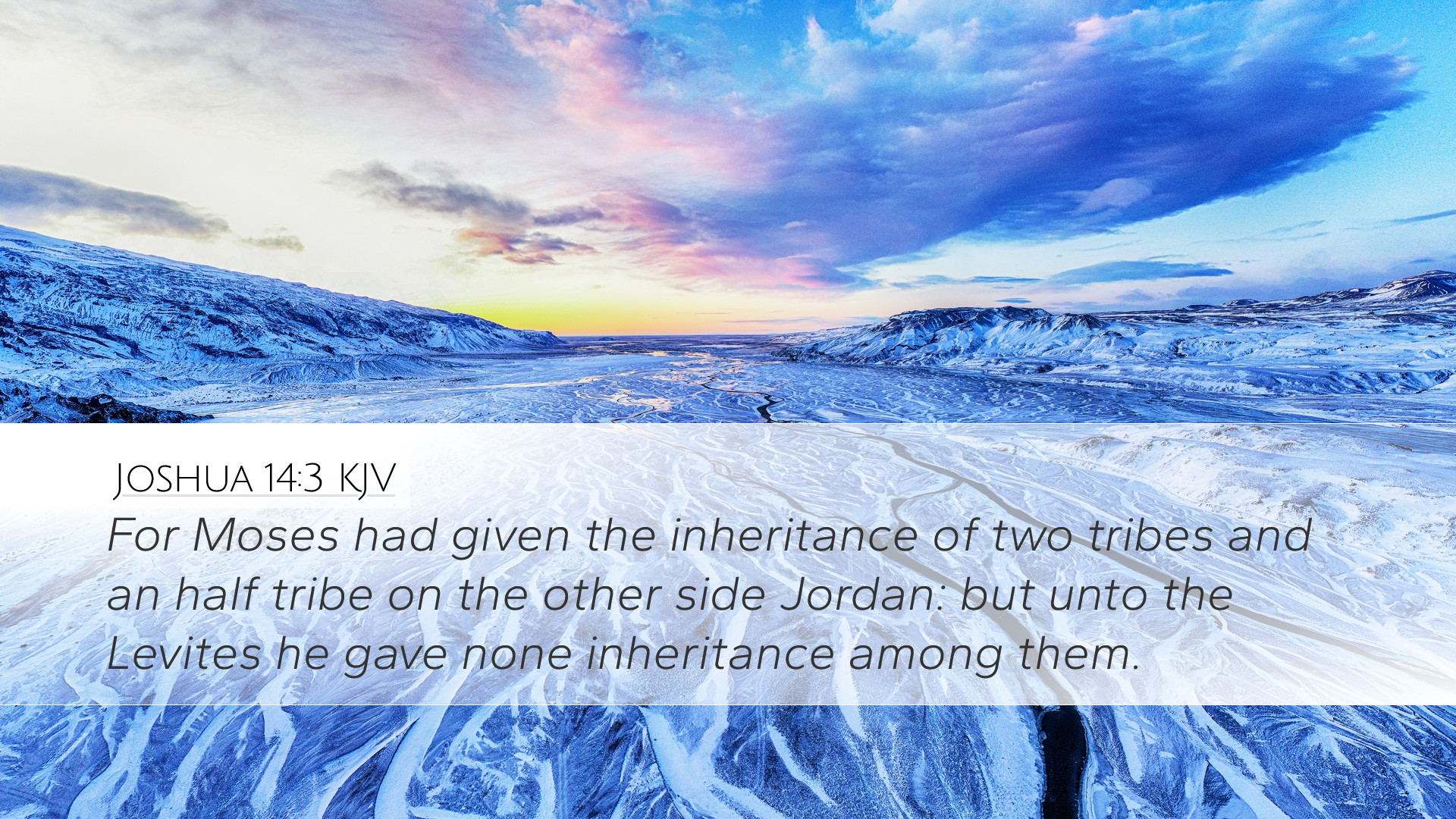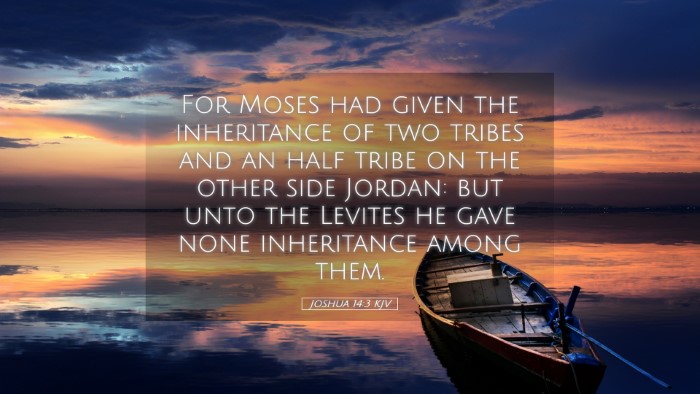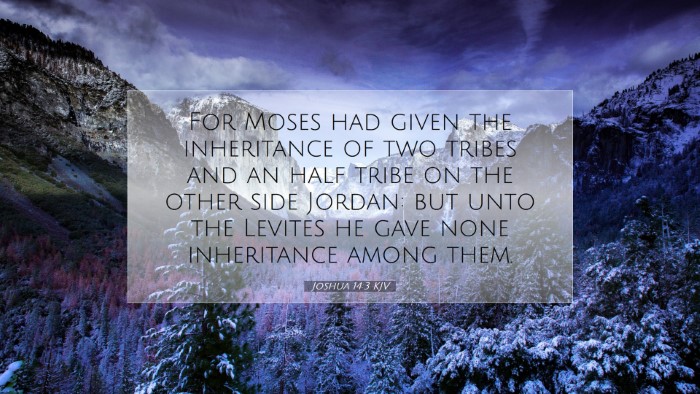Old Testament
Genesis Exodus Leviticus Numbers Deuteronomy Joshua Judges Ruth 1 Samuel 2 Samuel 1 Kings 2 Kings 1 Chronicles 2 Chronicles Ezra Nehemiah Esther Job Psalms Proverbs Ecclesiastes Song of Solomon Isaiah Jeremiah Lamentations Ezekiel Daniel Hosea Joel Amos Obadiah Jonah Micah Nahum Habakkuk Zephaniah Haggai Zechariah MalachiJoshua 14:3
Joshua 14:3 KJV
For Moses had given the inheritance of two tribes and an half tribe on the other side Jordan: but unto the Levites he gave none inheritance among them.
Joshua 14:3 Bible Commentary
Bible Commentary on Joshua 14:3
Scripture Reference: Joshua 14:3 (KJV) - "For Moses had given the inheritance of two tribes and half the tribe of Manasseh on the other side Jordan: but unto the Levites he gave none inheritance among them."
Introduction
This verse serves as a pivotal reminder of the allocation of land among the tribes of Israel as they settled in the Promised Land. Understanding the historical and theological implications of this inheritance system is crucial for pastors, students, and scholars.
Contextual Background
The book of Joshua narrates the conquest and division of Canaan among the twelve tribes of Israel. Joshua 14 specifically addresses the inheritance given to the tribes, emphasizing the distribution of land based on their historical and spiritual standing.
Moses and the Inheritance
The mention of Moses in this verse highlights his role as a leader who set the parameters for the land distribution. According to Albert Barnes, Moses’ actions were guided by God’s instructions, showcasing a divinely ordained structure for Israel's future.
Analysis of Key Components
1. The Tribes' Inheritance
Each tribe was offered land, except for the Levites. This omission is significant. Matthew Henry notes that the Levites were set apart for priestly duties and thus received cities and pasture lands rather than a territorial inheritance. This arrangement illustrated the spiritual focus of their calling, where their sustenance came from the offerings and support of the other tribes.
2. The Half-Tribe of Manasseh
The reference to the "half tribe of Manasseh" indicates that some tribes were divided with portions on either side of the Jordan. Adam Clarke elaborates on how these distinctions highlight the unity and diversity of God’s people, stressing the importance of maintaining community even in geographical separation.
Theological Implications
The theological significance of inheritance in Joshua is multi-faceted. It presents a foundational understanding of God's promises, identity, and the concept of divine election. The inheritance is not merely about land; it symbolizes possession, legacy, and the continuation of God's covenant with Israel.
Covenantal Promises
The land represents the fulfillment of God's promise to Abraham, Isaac, and Jacob. Each tribe’s allocation mirrors their roles and faithfulness. As noted by Henry, this reinforces the idea that God rewards faithfulness and obedience, which resonates strongly with pastoral teachings on stewardship and divine blessing.
Levites’ Unique Position
The Levites' lack of a land inheritance informs present-day reflections on spiritual leadership and service. Their engagement in ministry was not rooted in material gain but in spiritual fulfillment. Clarke articulates that this serves as a model for contemporary leaders who are called to prioritize spiritual over material wealth.
Applications for Today
As we examine Joshua 14:3, several applications arise for modern believers:
- Faithfulness in Diverse Callings: The diverse roles of tribes remind us that every calling—whether in ministry or secular life—has inherent value and purpose in God’s plan.
- Spiritual Focus: Like the Levites, we are reminded to focus on spiritual matters rather than materialism, understanding that our true reward comes from God.
- Community and Unity: Despite geographical divisions, the unity of Israel speaks to the necessity of community in the body of Christ, encouraging fellowship and support among believers.
Concluding Thoughts
Joshua 14:3 encapsulates a moment of reflection on the past, present, and future of Israel as a nation and serves to teach vital lessons on spiritual leadership, communal responsibility, and the importance of remaining faithful to God's call. This scripture remains relevant for modern believers as it provides insights into God's unchanging character and His plans for His people.


